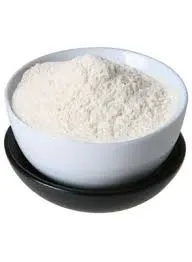
дец . 03, 2024 17:07 Back to list
Exploring the Benefits and Applications of Redispersible Polymer Powders in Construction Materials
Understanding Redispersible Polymer Powders Applications and Benefits
In recent years, the construction and building materials industry has seen increased demand for high-performance materials. One such innovation that has gained popularity is redispersible polymer powder (RPP). These versatile additives play a crucial role in enhancing the properties of various applications, ranging from adhesives to coatings and mortars. In this article, we will explore what redispersible polymer powders are, their composition, and the benefits they offer in various industries.
What is Redispersible Polymer Powder?
Redispersible polymer powder is a dry polymer that can be redispersed in water to form a stable aqueous dispersion. These powders are typically derived from emulsions of polymers such as vinyl acetate, ethylene vinyl acetate, and styrene-acrylic. Upon contact with water, RPP enhances the performance characteristics of the compounds it is mixed with, such as cement mortar, tile adhesives, and other construction materials.
Composition and Properties
The primary constituents of redispersible polymer powders include various polymer resins that impart unique properties when dry or wet. When mixed with aqueous solutions, these powders undergo a transformation, resulting in a stable dispersion that improves the flexibility, adhesion, and resistance to water and chemicals of the final product.
RPP products exhibit several advantageous properties, including - Enhanced Adhesion Redispersible polymer powders improve the bonding strength between different building materials, making them ideal for tile adhesives and surface coatings. - Flexibility and Workability These powders offer excellent flexibility, allowing construction materials to accommodate subtle movements without cracking. - Water Resistance High-performance RPPs provide resistance to water penetration, which is particularly beneficial in damp environments or for outdoor applications. - Durability Products that incorporate redispersible polymer powders often exhibit greater durability and longevity, leading to improved life cycles for building structures.
Applications in the Construction Industry
redispersible polymer powder

Redispersible polymer powders are widely utilized across numerous applications in the construction sector
1. Tile Adhesives RPP enhances the adhesion and workability of tile adhesives, making them more efficient and allowing for installation on various surfaces. 2. Cement-based Mortars In cementitious systems, RPPs improve the elasticity and water retention of mortars, resulting in better performance under diverse weather conditions. 3. Coatings Paints and coatings can benefit from the inclusion of RPP, which increases flexibility, adhesion, and overall durability. 4. Self-leveling Compounds RPPs ensure that self-leveling compounds flow smoothly while maintaining a strong bond with the underlying substrates.
5. Rendering and Plastering The flexibility and adhesion characteristics imparted by redispersible polymer powders make them advantageous in exterior and interior plastering applications.
Environmental and Economic Benefits
In addition to enhancing performance, redispersible polymer powders contribute to sustainability in the construction industry. They can be formulated to minimize the use of volatile organic compounds (VOCs), leading to safer working conditions and improved indoor air quality. Furthermore, by using RPPs, manufacturers can reduce the overall amount of binder needed in their systems, which can lead to cost savings without sacrificing quality.
Conclusion
Redispersible polymer powders represent a significant advancement in building materials technology. Their ability to enhance adhesion, flexibility, and durability makes them indispensable in modern construction applications. As the demand for high-performance and sustainable materials continues to rise, the role of RPPs will likely expand, paving the way for more innovative solutions in the construction and building materials industry. By understanding and utilizing the unique properties of redispersible polymer powders, manufacturers can create products that not only meet but exceed the expectations of today’s demanding construction standards.
-
Unlocking the Benefits of HPMC Products: A Gateway to Versatile Applications
NewsAug.07,2025
-
Unleashing the Potential of HPMC Ashland: A Comprehensive Look
NewsAug.07,2025
-
Tile Bonding Cellulose: The Key to Superior Adhesion and Durability
NewsAug.07,2025
-
Hydroxypropyl Methylcellulose Powder: The Versatile Component in Modern Pharmaceuticals
NewsAug.07,2025
-
Hydroxyethyl Cellulose: The Versatile Solution for Various Industries
NewsAug.07,2025
-
Hydroxyethyl Cellulose (HEC): The Versatile Polymer for Various Applications
NewsAug.07,2025







